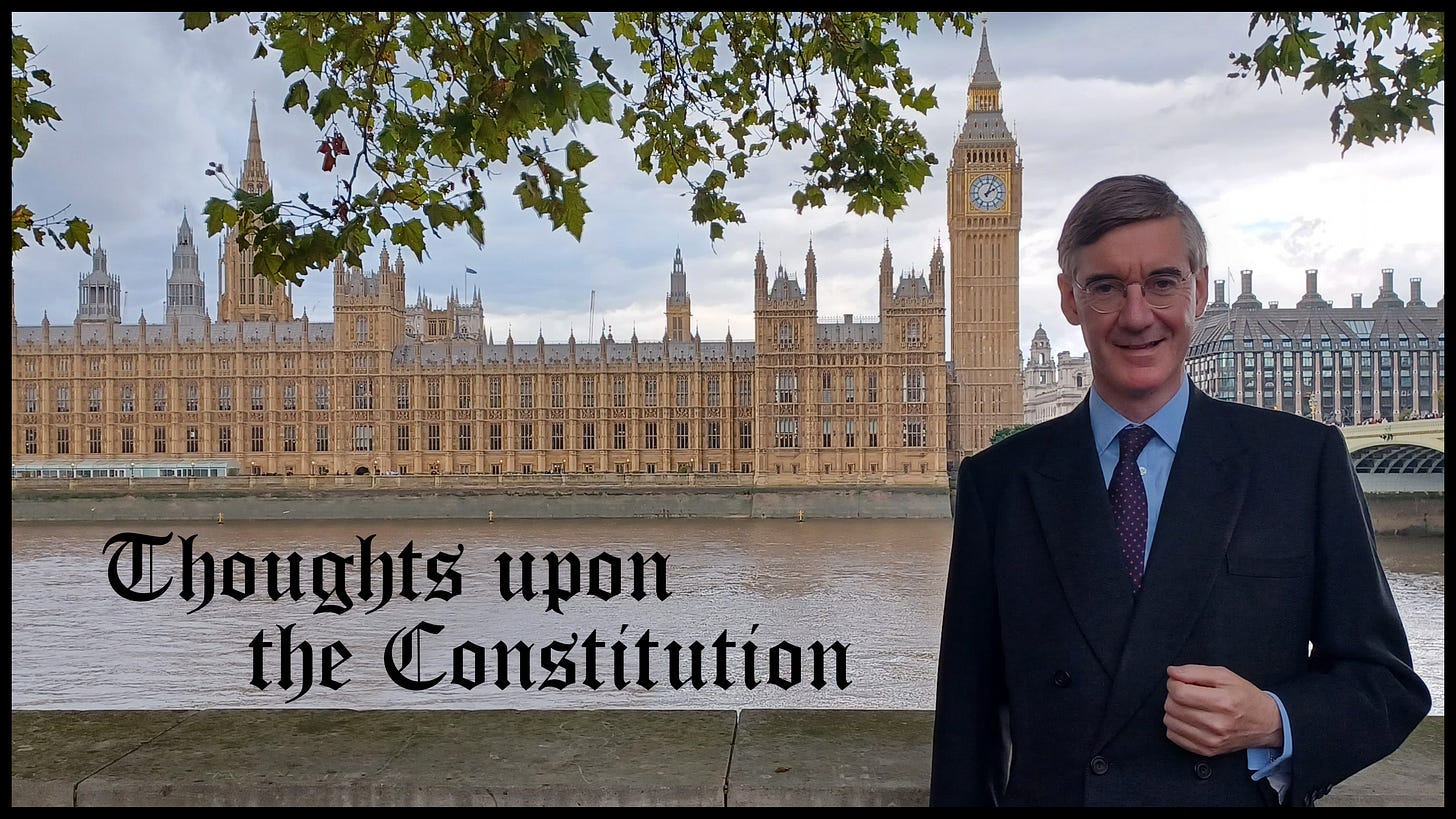The government is inert, slothful, and makes Monty Python's famous parrot look the acme of avian activity. A recent report has shown that a full week of parliamentary time has been lost in the House of Commons because members have been able to go home early. The reason is that the schedule is empty because there was no preparation for government.
This is in stark contrast to the new regime in the United States, where Donald Trump has pumped out Executive Orders at a speed that, continuing the bird theme, makes the Road Runner look slow.
Is this a matter of differences in the constitution, or differences in political will? Could a British government act with the pith and moment of an American president? Are there any lessons for the current opposition to learn about preparedness for office?
The two constitutions have many similarities, but one obvious difference. The US has a codified constitution in one document. The British have many documents dating back to 1215 that combine to form an uncodified set of rules.
In America, that document is intended, among other things, to limit the US president. Indeed, the aim of the Founding Fathers was to ensure a balance of power so that no arm of government could rule arbitrarily. This is the concept of the ‘Separation of Powers’.
In America, the Executive, the President and his cabinet, departments and agencies are not part of and may not be members of the legislature. Any congressman appointed to ministerial office has to resign.
The President is not a member of Congress, although the Vice-President chairs the Senate, where he has a casting vote. Unlike the Prime Minister, the President does not need a Congressional majority to remain in office. The Judiciary is separate from both, but new Assistant Justices are appointed by the President and need to be confirmed by the Senate.
Crucially, the Judiciary determines the Constitution, so decides if laws passed by Congress are legal. This owes a great deal to John Marshall, the fourth Chief Justice, who in 1803 established the right of the Supreme Court to declare laws passed by Congress to be unconstitutional.
This right of review also applies to Presidential Executive Orders. A number of Trump's edicts are already before the courts, with some of their effects postponed, or actually suspended.
This is important context, because while there has been a flurry of activity, not all of it will survive. Some of it may need legislation, or even constitutional change, which is almost impossible to achieve.
Nonetheless, the sheer volume of decisions affects the political narrative and most will stand even if some are overturned. By setting the political weather, Trump challenges his opponents to go against the popular mood. F. D. Roosevelt had a standoff with the Supreme Court, which he eventually won. So even in codified constitutional states, the momentum of politics matters.
In the United Kingdom, it is in some ways simpler, as long as the governing party knows what it wants to do. Since leaving the European Union, there is no automatically superior law in this country. As the judges themselves accept, “the principle of legality does not permit a court to disregard an unambiguous expression of Parliament's intention, such as that with which we are concerned in the present case”.*













